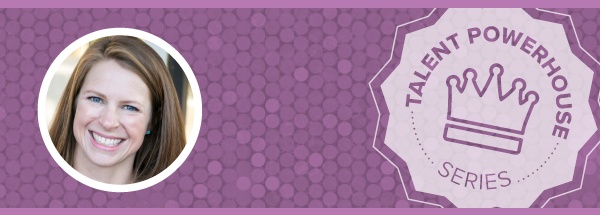
Ahead of her upcoming Entelo webinar, Katie Gechijian stopped by Hiring On All Cylinders at last month’s SourceCon to chat about her work mentoring new sourcers and recruiters, what makes informal and formal recruiting networks so valuable, and why it’s so important that inclusivity strategies get baked into the sourcing and recruiting cake from the very beginning of each individual search.
Tune in to hear more about:
- What makes professional mentorship so valuable in sourcing and recruiting
- Why hiring managers need to be at the center of your talent acquisition strategy
- The role of recruiters as company culture and brand ambassadors
We also spent time with Katie to hear what's to come for her webinar, A Tactical Approach to Building a Diverse Workforce, why diversity and inclusion efforts are so undervalued, and what she's most excited about in the future of hiring.
Throughout the course of your career, what has been your biggest challenge in working to implement strategies and a culture around hiring for diversity? How did you work around those obstacles?
The challenge I have faced most often is the casual opposition to diversity efforts and it goes like this, "You know, there just isn't that much diversity in the 'xyz' industry." (But I've heard that comment about at least five different industry verticals.) The follow-up comment is usually, "and I know everyone in this space and there just isn't any diversity." The hiring manager isn't saying they don't value diversity, only that it's not an option in their industry, market, etc.
It places the burden of proof on the recruiter to prove the hiring manager wrong and often relieves the hiring manager from having to take ownership in the recruiting process or the outcome. Fortunately, there are several workarounds, but it is a tough place to begin a search. A strong sourcer knows the hiring manager rarely knows the full market, so a comprehensive sourcing strategy can help uncover prospects the hiring manager isn't aware of -- likely because of the differences between the hiring manager and the previously unknown prospects. Much of my success in diversity recruiting can be attributed to uncovering the complete talent market versus relying only on a hiring manager's list of namesake employee referrals.
Being in the workforce since 2002, you've seen much of the shift around the attitudes around diversity and inclusion. What's changed? What's the same?
I feel that there is an urgency and an impatience towards realizing diversity and inclusion progress. A recognition that in some cases, a decade or more has passed yet the numbers are roughly the same. However, I think the demographic measurement of diversity may also be part of the problem. Diversity is much more than just simply demographics; it is the appreciation of difference and inherently this takes many forms. I feel solving only for a demographic difference and improvement is an incomplete strategy and that is why I was so eager to research and present on human-centered design approaches. At the end of the day, no one wants to be valued or devalued for their demographics. No one. So the corporate goal is often at odds with an individual's belief about themselves and how they bring value to the organization. We are all unique.
Why do you think some orgs are still not bought into supporting D&I on their teams?
I feel most organizations recognize and understand the benefits of a diverse team. It would be hard to find an annual report of any public company that didn't champion the diversity of their teams. Research shows that the most diverse organizations win and they win by multiple measures. Yet, try to find tactical strategies beyond demographic sourcing and identification at an experienced hire level and suddenly the research becomes sparse. It is hard, bottom line, and that is why I think organizations struggle; there are not a lot of tactics for Plan B, Plan C, and so on.
What are you most excited for in the future of hiring?
Goodness, any organization that brings true diversity of ideas, experiences, geography, expression, AND demographics to the table will have an unstoppable team. I'm excited to continue the journey of solving this challenge and there are some pretty terrific AI and big data tools to help with this work. I've highlighted several in my presentation for Tuesday. I'm energized by the intersection of big, real-world problems, with open-source communication of ideas, and modern data tools and inferences. I believe that the strategies for building authentically diverse and inclusive teams is within our reach.
Want to learn more about how you can modernize your TA strategy and find out how you're overlooking qualified candidates? Save your seat and join us for How Talent Teams Can Take a Tactical Approach to Building a Diverse Workforce!

